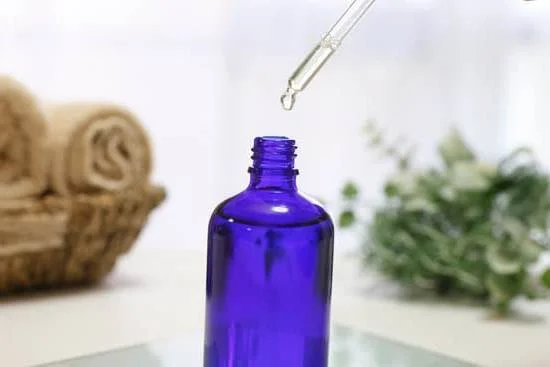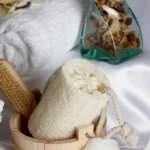Are you wondering how to choose essential oils for aromatherapy diffusers? Aromatherapy is a holistic healing treatment that uses natural plant extracts, known as essential oils, to promote physical and emotional well-being. In this article, we will explore the concept of aromatherapy and the different types of essential oils used in this practice. Understanding how to choose the right essential oil for your aromatherapy diffuser can greatly enhance the therapeutic benefits of this ancient practice.
Aromatherapy has been used for centuries as a natural remedy for various health and wellness purposes. Essential oils are highly concentrated plant extracts that capture the natural aroma and therapeutic properties of plants. Each essential oil has its own unique fragrance and healing properties, making them suitable for different purposes such as relaxation, stress relief, or boosting energy levels. The right combination of essential oils can create a soothing and healing atmosphere in any home or work space.
When choosing essential oils for your aromatherapy diffuser, there are several factors to consider. The quality and purity of the essential oil is crucial in determining its effectiveness and safety for use in a diffuser. Additionally, personal preferences and emotional or physical needs play a significant role in selecting the right essential oil. Experimenting with different blends of essential oils can also help achieve specific therapeutic effects such as improving sleep quality or reducing anxiety.
Understanding Different Types of Essential Oils
When it comes to choosing essential oils for aromatherapy diffusers, it’s important to have a good understanding of the different types of essential oils available in the market. Each essential oil has its own unique properties and benefits, making them suitable for specific purposes in aromatherapy. Some popular essential oils used in aromatherapy include lavender, eucalyptus, peppermint, tea tree, and lemon, among others.
Description of Popular Essential Oils
Lavender essential oil is known for its calming and relaxing properties, making it ideal for promoting better sleep and reducing stress and anxiety. Eucalyptus essential oil is often used for respiratory issues due to its decongestant and anti-inflammatory properties. Peppermint essential oil is invigorating and can help alleviate headaches and improve mental clarity.
Tea tree essential oil has antimicrobial properties and is commonly used for skin conditions such as acne and fungal infections. Lemon essential oil is refreshing and uplifting, making it a popular choice for boosting mood and energy levels.
Benefits and Uses of Each Essential Oil
Understanding the benefits and uses of each essential oil is crucial in determining which ones are most suitable for your needs. For example, if you are looking to create a calming atmosphere in your home or office, then lavender or chamomile essential oils would be an excellent choice.
On the other hand, if you’re seeking relief from congestion or cold symptoms, then eucalyptus or peppermint essential oils would be more appropriate. Being aware of these distinctions will help you choose the right essential oils for your aromatherapy diffuser based on your specific requirements.
Factors to Consider When Choosing Essential Oils for Aromatherapy Diffuser
Choosing the right essential oil for your aromatherapy diffuser is crucial in order to maximize the benefits of aromatherapy. Here are some factors you should consider when selecting essential oils for your diffuser:
- Quality and Purity: When choosing essential oils, it’s important to ensure that they are of high quality and purity. Look for oils that are 100% pure and therapeutic grade, as these will offer the best therapeutic benefits.
- Personal Preferences and Needs: Consider your personal preferences and emotional or physical needs when choosing essential oils. For example, if you’re looking to relax and unwind, you may opt for lavender or chamomile oil. If you need an energy boost, citrus oils like lemon or orange may be more suitable.
- Blending Essential Oils: Experimenting with different blends of essential oils can be a fun and effective way to address specific concerns. Certain combinations of oils can have synergistic effects that enhance their individual benefits.
When deciding how to choose essential oil for aromatherapy diffuser, keep in mind the importance of selecting high-quality oils that meet your specific needs and preferences. By considering these factors, you can create a customized aromatherapy experience that caters to your unique requirements.
It is also important to note that some people might have allergic reactions to certain essential oils. It’s always recommended to perform a patch test before using an essential oil in a diffuser to ensure that it doesn’t cause any adverse reactions. Additionally, consulting with a healthcare professional or aromatherapist can provide valuable guidance on selecting the most suitable essential oils for your individual circumstances.
Aromatherapy Diffusers and Their Role in Diffusing Essential Oils
Aromatherapy diffusers play a crucial role in dispersing essential oils into the air, allowing the user to enjoy the therapeutic benefits of aromatherapy. There are different types of diffusers available in the market, each with its unique mechanism for diffusing essential oils. Some common types of diffusers include ultrasonic, nebulizing, heat, and evaporative diffusers.
Ultrasonic diffusers work by using ultrasonic vibrations to create a fine mist of essential oil and water particles that are released into the air. Nebulizing diffusers disperse undiluted essential oil directly into the air by breaking it down into tiny particles. Heat diffusers use heat to evaporate the essential oil and disperse it into the room, while evaporative diffusers release essential oils through evaporation.
When choosing an essential oil for an aromatherapy diffuser, it is important to consider the type of diffuser being used. Different types of essential oils work best with specific diffuser types. For example, thin or light oils like citrus oils work well in nebulizing and evaporative diffusers, while thicker oils like cedarwood or patchouli are better suited for ultrasonic and heat diffusers.
Understanding how different essential oils interact with various types of aromatherapy diffusers can help users maximize the therapeutic benefits of their chosen oils. Experimenting with different combinations can also lead to discovering personalized blends that suit individual preferences and needs. By matching specific essential oils with appropriate diffusion methods, users can enhance their overall aromatherapy experience and achieve desired emotional or physical effects from the aroma emitted by the diffuser.
Matching Essential Oils With Aromatherapy Diffusers
Choosing the right essential oil for your aromatherapy diffuser is crucial to achieving the desired therapeutic effects. Different essential oils have unique properties and can be best enjoyed using specific types of diffusers. When considering how to choose essential oils for aromatherapy diffuser, it’s essential to match the oil with the type of diffuser you have and understand how they work together.
Certain essential oils, such as citrus oils, are best suited for nebulizing diffusers, as they can disperse the oil in a more concentrated form. On the other hand, ultrasonic diffusers are ideal for lighter, more delicate oils like lavender or chamomile. Understanding these differences will allow you to maximize the benefits of both your essential oil and your diffuser.
Moreover, when selecting an essential oil for your aromatherapy diffuser, consider the intended purpose of the oil. For example, if you’re looking for relaxation or stress relief, soothing oils like lavender or jasmine may be most effective. If you’re aiming to boost energy or focus, invigorating scents like peppermint or eucalyptus would be more suitable.
Lastly, experimenting with different blends of essential oils can create unique aromatic experiences. Mixing complementary scents based on personal preferences and emotional or physical needs allows for customization in achieving desired outcomes from your aromatherapy practice.
| Essential Oil Type | Ideal Diffuser Type |
|---|---|
| Citrus Oils (e.g. lemon, orange) | Nebulizing Diffusers |
| Lavender, Chamomile | Ultrasonic Diffusers |
| Peppermint, Eucalyptus |
Tips for Testing and Trying Essential Oils With Aromatherapy Diffuser
When it comes to using essential oils in an aromatherapy diffuser, it’s important to find the right combination that works best for you. Here are some tips for testing and trying out different essential oils with your diffuser:
- Start with a small amount: When trying out a new essential oil in your diffuser, start with just a few drops. This will allow you to gauge the strength of the scent and make adjustments as needed.
- Take note of effects: Pay attention to how each essential oil makes you feel when diffused. Some oils may have calming effects, while others may be uplifting or energizing. Keep track of which oils have the desired impact on your mood and well-being.
- Experiment with different blends: Essential oils can be blended together to create unique aromas and therapeutic benefits. Try mixing different oils to create your own custom blend for specific purposes such as relaxation, focus, or respiratory support.
It’s also important to consider the quality and purity of the essential oils you are using. Look for oils that are labeled as “pure” or “100% therapeutic grade,” as these are more likely to provide the intended therapeutic benefits when used in a diffuser. Additionally, do some research on each essential oil before using it in your diffuser, as some oils may not be suitable for certain individuals, especially those with allergies or sensitivities.
Lastly, keep in mind that personal preferences play a big role in choosing essential oils for aromatherapy diffusers. What works well for one person may not have the same effect on another. It’s all about finding what works best for you and experimenting with different combinations until you find the perfect match for your needs.
Safety Precautions and Tips for Using Essential Oils in Aromatherapy Diffusers
Aromatherapy has gained popularity as a natural and holistic approach to health and wellness. Essential oils are the cornerstone of aromatherapy, utilized for their therapeutic properties and pleasant scents. When it comes to using essential oils in aromatherapy diffusers, it is important to consider safety precautions and follow guidelines to ensure a positive experience.
Guidelines for Using Essential Oils in Diffusers
When choosing essential oils for use in aromatherapy diffusers, it is crucial to select high-quality, pure essential oils. Look for reputable brands that offer third-party testing and provide information about the sourcing and production of their oils. It is also important to consider the dilution ratio recommended for diffuser use. Most essential oil manufacturers provide guidelines on how many drops of oil should be used in a specific amount of water in the diffuser.
Recommended Usage Precautions
Some essential oils can be irritating to the skin or mucous membranes if used undiluted or in high concentrations. Before using an essential oil in a diffuser, research its safety profile and recommended usage guidelines. It is also advised not to leave the diffuser running continuously for long periods, as this may lead to overexposure to the essential oil’s aroma.
Tips for Safe Diffuser Use
To ensure safe use of essential oils in aromatherapy diffusers, always place the device on a stable surface away from children and pets. Follow the manufacturer’s instructions for cleaning and maintenance of the diffuser to prevent any issues with buildup or malfunction. Additionally, if any adverse reactions occur while using a specific essential oil in a diffuser, discontinue use immediately and seek medical advice if necessary.
Conclusion and Recommendations
In conclusion, the choice of essential oils for aromatherapy diffusers is a personal and individual decision that depends on one’s emotional and physical needs, as well as personal preferences. It is important to consider the quality and purity of essential oils when making a selection, as well as understanding how different essential oils work in different diffuser settings. By carefully considering these factors, one can create a customized aromatherapy experience that is tailored to their specific needs.
As mentioned earlier, it is crucial to test essential oils before using them in a diffuser and to experiment with different combinations to find the right balance. Additionally, following safety precautions and usage guidelines for dilution ratios is essential to avoid any potential adverse reactions. With a focus on personal well-being and safety, individuals can fully enjoy the benefits of aromatherapy while using essential oils in their diffusers.
In sum, choosing the right essential oil for an aromatherapy diffuser can enhance one’s overall well-being by promoting relaxation, reducing stress, improving sleep quality, and creating a pleasant atmosphere at home or in the workplace. Ultimately, this process allows individuals to explore the vast world of aromatherapy and essential oils while discovering unique blends that resonate with them personally.
Frequently Asked Questions
How Do I Choose Essential Oils for My Diffuser?
When choosing essential oils for your diffuser, consider the scents that you enjoy and the benefits you are looking for. Research the potential effects of different oils to make an informed decision.
What Are the Best Essential Oils to Use in a Diffuser?
The best essential oils to use in a diffuser depend on your personal preferences and needs. Popular options include lavender for relaxation, eucalyptus for respiratory support, and peppermint for an energy boost. Experiment with different oils to find what works best for you.
How Do I Choose Aromatherapy Oils?
When choosing aromatherapy oils, think about the specific benefits you are seeking. Whether it’s stress relief, improved sleep, or an uplifted mood, there are different oils that can help address these concerns. Consider both the scent and therapeutic properties of the oil before making a selection.

Are you looking for a natural way to improve your health and wellbeing?
If so, aromatherapy may be the answer for you.





